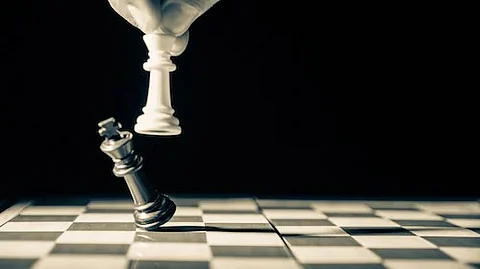Even as young Indian chess Grandmasters like R. Praggnanandhaa (ELO rating 2,707), D. Gukesh (2,751), Arjun Erigaisi (2,704) and Nihal Sarin (2,684) are on the global prowl, are they going to shoulder India's chess burden for the coming decades?
What about the next set of young players from India? And where are they?
The results of the recently-concluded FIDE World Youth U-16 Olympiad at the Netherlands opened up these questions as the Indian team did not figure in the top 10. Seeded 16th, the India came 15th at the end.
On the other hand, second seeded China won the gold with Turkey and Armenia coming second and third, respectively.
Curiously, none of the young Chinese players figure in the world juniors top 10 list, while India’s Gukesh, Praggnanandhaa, Erigaisi and Sarin are ranked second, fourth, fifth and seventh, respectively.
So the logical corollary is that India should be having a battery of strong young upcoming chess players.
“The unfortunate fact is that most of the parents of talented players are illiterate in terms of importance of national championships, FIDE events, and other important events which are on FIDE calendar,” GM Pravin Thipsay told IANS.
According to Thipsay, parents and coaches dig the grave of their children's career by choosing a path of selecting tournaments which have no real significance.
Thipsay also wondered whether the best Indian players participated in the Youth Olympiad as the team was seeded 16th.
To the query whether the upcoming Indian players are focused only on their ratings, Thipsay said the focus is on getting the GM title easily.
“Thereafter, it is just a random path without any specific plans or goals. Just saying 'I want to be world champion' is not enough,” Thipsay said.


